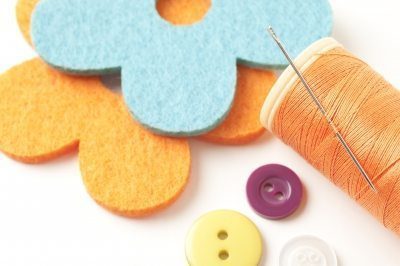[dropcap style=”font-size:100px; color:#992211;”]B[/dropcap]abyboomers from the ‘make do and mend’ generation of rationing, enormous shorts and the lumpen thud of the back-beat outperform their millenial counterparts at clothing repair tasks.
And if you think the yoof were worse at shoe-polishing than their boomer opponents, they absolutely SUCKED at the
: cause global environmental disaster/dismantle the welfare state/build offices over beautyspots/destroy all future generations’ hopes of stable pensionable employment/relax, I’ve got mine,so screw everyone else!
part of the game.
As more and more high schools around the country drop home economics classes due to budget cuts or changes in educational priorities, many high school students are left without basic skills, such as preparing meals and sewing. Now, researchers have found that a significant gap exists in the amount of “common” clothes repair skills possessed by members of the baby boomer generation and millennials.
Pamela Norum, a professor in the Department of Textile and Apparel Management in the MU College of Human Environmental Sciences, found that many more of the baby boomer generation possess skills such as sewing, hemming, button repair and general laundry knowledge than Americans 18-33 years of age.
Norum says that although these findings are not surprising, they are concerning considering the amount of clothing waste that is generated each year.
“In 2012, Americans created more than 14.3 million tons of textile waste,”  Norum said. “Much of this waste is due to clothes being discarded due to minor tears or stains–easily repairable damages if the owners have the skills and knowledge to fix them. If we, as a nation, want to move toward more sustainable practices in all aspects, we need to evaluate not only how we take care of our clothes, but how we educate younger generations to do so as well.”
Norum said. “Much of this waste is due to clothes being discarded due to minor tears or stains–easily repairable damages if the owners have the skills and knowledge to fix them. If we, as a nation, want to move toward more sustainable practices in all aspects, we need to evaluate not only how we take care of our clothes, but how we educate younger generations to do so as well.”
Norum’s study, published in the Family and Consumer Sciences Research Journal, surveyed more than 500 American baby boomers and millennials about their clothing consumption practices. While baby boomers generally had much more knowledge of clothes repair and laundry than millennials, millennials who reported to have taken sewing classes or who had been taught to sew by a family member had more overall clothes repair skills than those that had no education on the subject. Norum says this indicates the need for increased education on what once was considered common clothing maintenance knowledge.
“Traditionally, these skills were learned in the home or in secondary school,” Norum said. “With the increase of women in the labor force and the decrease in funding for family and consumer sciences programs (FACS), the opportunity to acquire such skills has diminished for young Americans. Existing FACS curriculum may want to tie in sewing/mending skills with sustainable consumption as a way of appealing to younger generations while providing the skills they need.”
Norum suggests delivering this kind of instruction in settings that may extend beyond the school environment, such as through utilizing new technologies like social media and online videos to reach consumers.
“Using fashion blogs to capture the attention of students prior to introducing sewing skills may be one approach,” Norum said. “Students can use websites like Pinterest to gather ideas for in-class repurposing projects and then repurpose items from home using techniques gained in class. This could improve skills that are important for any consumer to possess as well as promote sustainable recycling practices.”
Source: University of Missouri-Columbia
Image: www.freedigitalphotos.net/m_bartosch

Some of the news that we find inspiring, diverting, wrong or so very right.



















